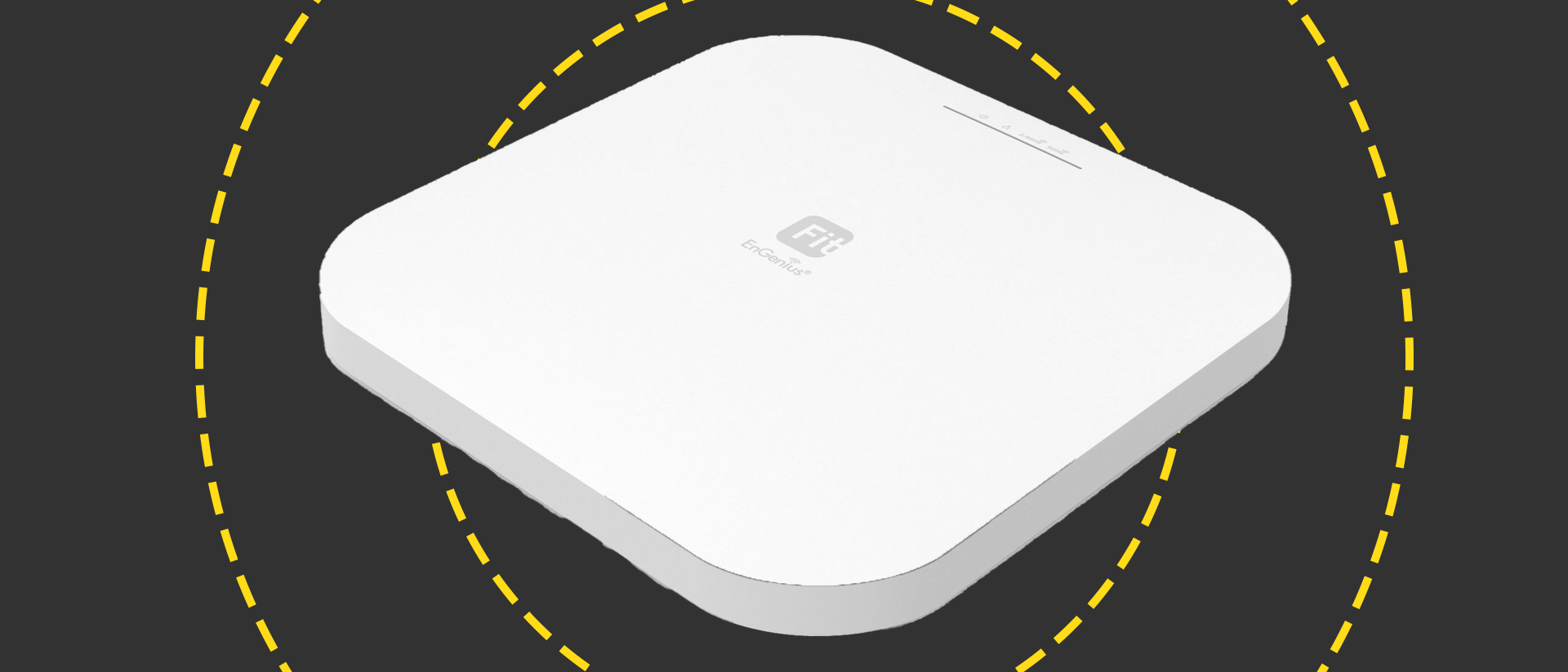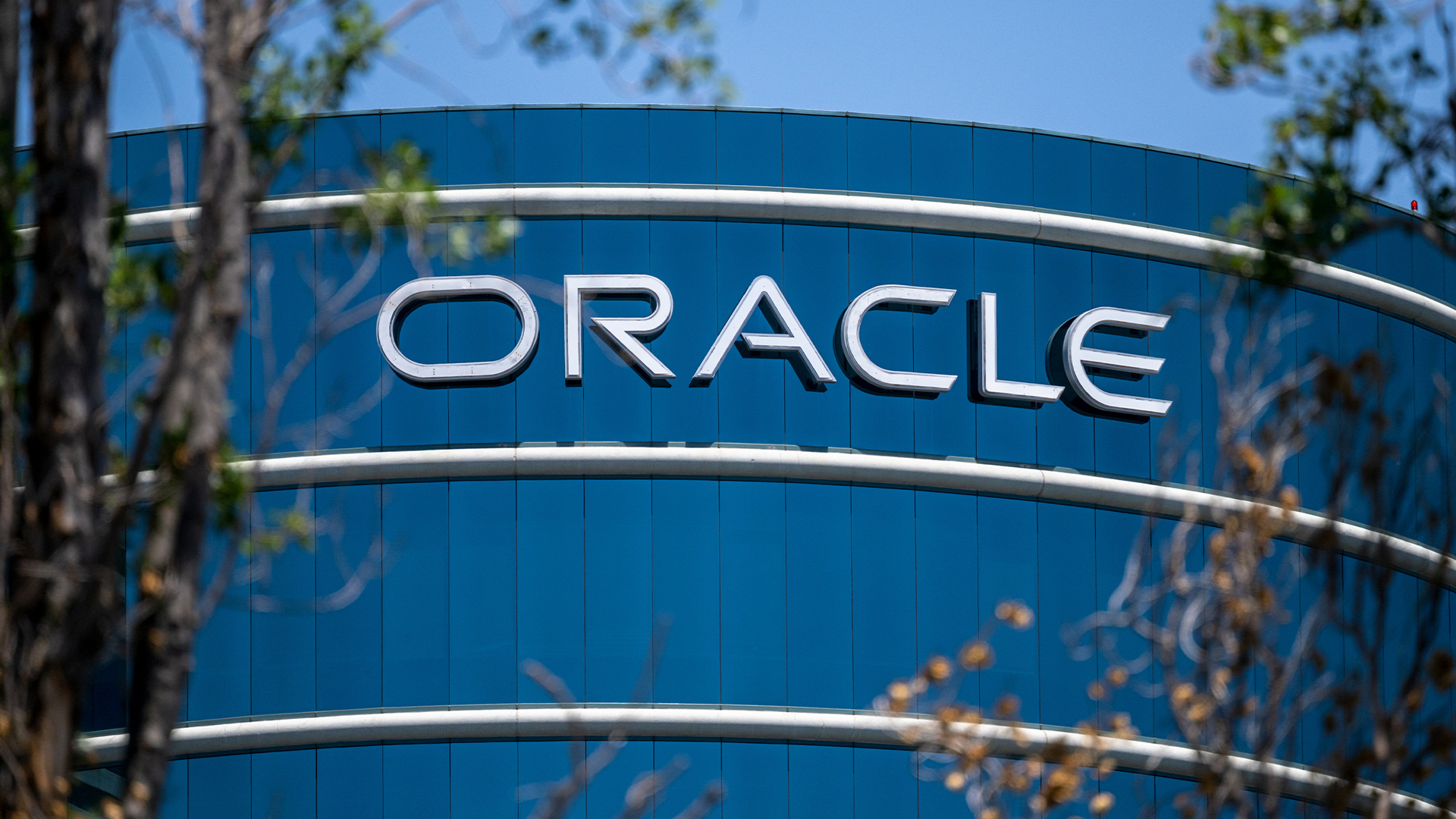EnGenius EWS377-FIT review: An easy-to-deploy wireless network with totally free cloud management
Expensive, but wireless deployment couldn't be any easier and this Wi-Fi 6 AP offers good performance

-
+
Simple setup
-
+
Free cloud management
- +
-
-
Expensive

EnGenius has a fine reputation in the managed wireless network arena and it now wants to extend these capabilities to small businesses with limited IT expertise. The FIT range of network products comprises PoE switches, Wi-Fi 6 access points (APs), and an optional on-site controller, with a key feature being their extremely simple deployment.
All FIT switches and APs can be run in standalone mode, looked after by the little on-premises FitController appliance, or moved completely into the cloud courtesy of the FitXpress web portal and mobile apps. Costing £134, the FitController targets IT-savvy users, while FitXpress is for those that want it all done for them and is completely free.
In this review, we'll focus on the company's flagship EWS377-FIT, a dual-band AX3600 Wi-Fi 6 access point claiming top speeds of 1,148Mbits/sec on its 2.4GHz radio and 2,400Mbits/sec on the 5GHz radio. It also has a 2.5GbE multi-gig PoE+ LAN port, but it doesn't support high-performance 160MHz Wi-Fi 6 channels.
You'll need a PoE source as a power adapter isn't included; we used the EWS2910P-FIT 8-port gigabit switch, which has a 55W power budget and costs £171. EnGenius offers four larger FIT Gigabit PoE switches up to the 48-port EWS7952FP-FIT and its large 740W power budget.
EnGenius EWS377-FIT review: Performance
For performance testing, we used Dell Windows 10 and 11 workstations equipped with TP-Link Archer Wi-Fi 6 and 6E PCI-E adapter cards. Close-range copies between the desktops and a Dell Windows server on our main LAN returned around 102MB/sec, and moving the AP ten metres away into the next room saw speeds drop to a creditable 86MB/sec.
Powered from the switch's PoE LAN ports, the FitController presents a web console that's a scaled-down version of EnGenius' enterprise cloud portal and is specifically for managing local networks only.
It's easy to use, with our switch and AP automatically appearing in its inventory for fast two-click registration, after which we assigned them to our preconfigured network.
Sign up today and you will receive a free copy of our Future Focus 2025 report - the leading guidance on AI, cybersecurity and other IT challenges as per 700+ senior executives
Before adding APs, make sure you update the preconfigured wireless SSID, which is open by default. The controller supports 50 networks and 100 FIT APs and switches, with its console dashboard presenting an overview of all devices and wireless clients, as well as graphs for wireless throughput, the top APs, clients, SSIDs, and applications.
For each SSID, you decide which radios are active, choose from a range of WPA2 and WPA3 encryption schemes, enable L2 isolation, band steering, and fast roaming, and apply download and upload rate limits for the entire SSID or per client. Guest wireless users can be presented with a captive portal that supports click-through, EnGenius user, Radius, or voucher authentication methods, and you can present them with a custom splash page using the integral HTML editing toolbox.
The FitXpress web portal supports eight networks and 30 FIT devices and is a cinch to use: simply visit the fit.engenius.ai website, create a free account, and scan the QR code on a device quick start card to grab the mobile app. We quickly assigned the switch and AP to our cloud account using an iPad running the FitXpress app to scan their QR codes.
The web portal is a simple affair but, as with the FitController, you should update the default wireless SSIDs as they are open. When creating new SSIDs those designated as "Staff" offer more encryption and security options, including external Radius authentication servers.
Guest SSIDs can use WPA2/WPA3 Personal encryption and have L2 isolation enabled to stop users from seeing each other. You can also present open wireless networks and direct guests to a customizable captive portal with an acceptable use policy (AUP) agreement.
Small businesses that want easily deployed wireless networks with totally free cloud management will like the EnGenius FIT products. What they won't like is the price: at £386 the EWS377-FIT is expensive for a basic AX3600 AP, and the other FIT components aren't any better value, either.
FAQs
How much is EWS377 fit?
The EnGenius EWS377-FIT is $188.
How do I connect my EnGenius extender?
Connect your laptop to the EnGenius Mesh router.
Open a browser and type the IP address into the bar (the default IP is 192.168.0.1)
Use your username and password credentials created via the EnMesh APP to log in.
How do I find my EnGenius access point IP address?
Open a web browser and type the IP address of the EnGenuis router in your address bar. The IP address should be on the back of the router.
Open your web browser of choice and type IP address of your EnGenius router in the
EnGenius EWS377-FIT specifications
| Row 0 - Cell 0 | Row 0 - Cell 1 | Row 0 - Cell 2 |
| Row 1 - Cell 0 | Row 1 - Cell 1 | Row 1 - Cell 2 |
| Row 2 - Cell 0 | Row 2 - Cell 1 | Row 2 - Cell 2 |
Dave is an IT consultant and freelance journalist specialising in hands-on reviews of computer networking products covering all market sectors from small businesses to enterprises. Founder of Binary Testing Ltd – the UK’s premier independent network testing laboratory - Dave has over 45 years of experience in the IT industry.
Dave has produced many thousands of in-depth business networking product reviews from his lab which have been reproduced globally. Writing for ITPro and its sister title, PC Pro, he covers all areas of business IT infrastructure, including servers, storage, network security, data protection, cloud, infrastructure and services.
-
 PayPal appoints HP’s Enrique Lores in surprise CEO shake-up
PayPal appoints HP’s Enrique Lores in surprise CEO shake-upNews The veteran tech executive will lead the payments giant into its next growth phase amid mounting industry challenges
By Daniel Todd Published
-
 Oracle targets financial services gains with new agentic AI suite
Oracle targets financial services gains with new agentic AI suiteNews The cloud giant has unveiled a new series of agents for retail banking providers
By Ross Kelly Published
-
 Global tech spending is skyrocketing, and European firms are doubling down on investment
Global tech spending is skyrocketing, and European firms are doubling down on investmentNews Reports from Gartner and Forrester predict record levels of tech investment
By Emma Woollacott Published
